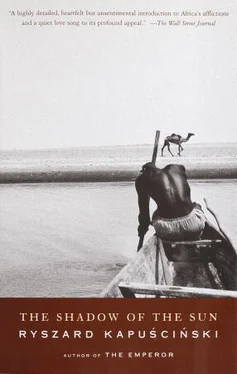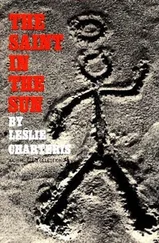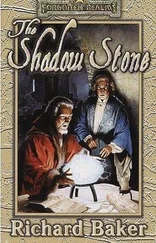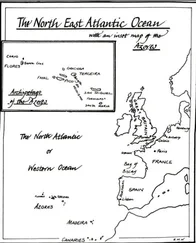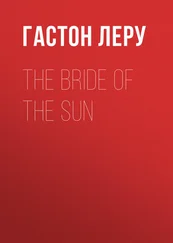The silence after the priest informed them that the road to the Christian ideal is blocked by sin, which they carry within themselves and commit continually by the mere fact of their own existence, sprung from a profound source. The members of the congregation belonged to the Ibo tribe, and the traditional religion of the Ibo, like that of the majority of African communities, does not know the concept of sin. The African belief system has a radically different understanding of guilt from that espoused by Christian theology. In Africa, the notion of metaphysical, abstract evil — evil in and of itself — does not exist. A deed first becomes evil when it is discovered, and, second, when the community or the individual declares it to be evil. Moreover, the criterion here is not axiomatic, but practical, concrete: that which does harm to others is evil. Evil intentions do not exist, because evil is not evil until it materializes, assumes an active form. There are only evil actions.
If I wish illness upon my enemy, I am doing nothing wrong, committing no sin. Only when my enemy actually falls ill can I be accused of an evil deed: of sowing the seeds of illness in him (illnesses here are not believed to have biological causes, but to result from spells cast by one’s adversaries).
But perhaps most important, undiscovered evil is not evil, and therefore does not give rise to a feeling of guilt. I can cheat with a clean conscience until someone realizes that he is being cheated and points a finger at me. The Christian tradition, on the other hand, internalizes guilt: our soul aches, our conscience torments us, we are plagued by worries. That is the state in which we experience the full weight of sin, its stinging presence, its harrowing intrusiveness. It is different in societies in which the individual does not exist in and of himself, but only as part of a collective. The collective relieves us of private responsibility, therefore there is no individual guilt, and by the same token no sensation of having sinned. Awareness of sin takes place in time: I did something wrong, I feel that I committed a sin, I am tortured by this, and I look for a way to cleanse myself, to atone, to confess — to erase the sin. This is a process, and it requires the passage of time to unfold. To the African mind, this time simply does not exist; there is no space for sin and its consequences. Either I have not done anything wrong, since I was not found out, or else, if the evil is brought to light, it is at the very same moment, instantly, punished — and thus purged. Guilt and punishment go hand in hand here, form an inseparable unit, with no open space between them, no chink. In the African tradition, the conflicts and drama of Raskolnikov are an impossibility.
“Sin makes you deaf and blind,” the priest repeated for emphasis. His voice started to tremble slightly. “But do you know what awaits those who do not hear and do not see? Who think they can live at a distance from the Lord?”
He reached again for the Bible, and lifting one arm up high, as if it were the antenna along which the word of the Lord would flow down from the heavens, called out:
Then said the Lord unto me…. cast them out of my sight, and let them go forth.
And it shall come to pass, if they say unto thee, Whither shall we go forth? then thou shalt tell them…. Such as are for death, to death; and such as are for the sword, to the sword; and such as are for the famine, to the famine; and such as are for the captivity, to the captivity.
And I will appoint over them four kinds, saith the Lord: the sword to slay, and the dogs to tear, and the fowls of the heaven, and the beasts of the earth, to devour and destroy.
The drums boomed hollowly. But the choir and the orchestra were silent. Then, all was quiet. The congregation stood still, their faces lifted high. Out of the corner of my eye I noticed sweat pouring down. And I saw tense strained features, taut necks, hands stretched upward in a dramatic gesture that was partly a plea for salvation, partly an instinctive form of self-defense, as if in anticipation of a huge boulder that any moment now would come crashing down.
It occurred to me that the participants at this mass must be experiencing an inner conflict, maybe even a drama, although I wasn’t sure to what degree they would be conscious of it. They were for the most part young people from an industrial African town — the new Nigerian middle class. They belonged to a social group modeling itself on European and American elites, whose culture is essentially Christian. They wanted to familiarize themselves with this culture and this faith, get a feel for their nature, identify with them. So they joined one of the Christian congregations, which accepted them while at the same time imposing upon them doctrinal and ethical requirements alien to their native traditions. One of these was instruction in sin, a type of transgression and burden about which they knew nothing. As followers of the new faith, they now had to acknowledge the presence of sin, had to swallow that bitter, repugnant pill. And also to search immediately for ways to uproot it from their being — to become true, pure Christians. Relentlessly, the priest was hammering home the great and painful price they would have to pay. Hence the nature of his sermon: threats, humiliation. And they, for their part, fervidly accepted their status as sinners weighed down by the greatest of trespasses, were duly frightened by the specter of imminent infernal punishment, ready at a moment’s notice to don sackcloth and ashes.
Their eager submission to all the priest’s charges, grumblings, and accusations proved they considered this a price worth paying for the right to be in the church. The Ibo fear loneliness, regarding it as a curse and a condemnation. Here, they could participate in rites that gave them a sense of community, of belonging. And perhaps something greater still: many African societies have given rise to secret associations, a type of ethnic Freemasonry — secretive, closed, yet important and influential. Sects in Africa often try to model themselves on these traditional institutions, creating an atmosphere of secrecy and exclusivity, instituting their own system of signs and slogans, a distinct liturgy.
To avoid the rudeness of scrutinizing the hall during the service, I did not so much observe as intuit much of what was going on. I had within the scope of my vision only those standing closest to me. I was unable to see the others, but their presence was palpable: the atmosphere of this congregation was so concentrated, so full of vibrant, ecstatic emotion, so pervasive and poignant, that it couldn’t but penetrate and affect everyone. There was so much spontaneity, abandonment, and feeling in these people, so much ardent desire and quivering will and freely expressed sentiment, that one could deduce and comprehend everything that was going on behind one’s back, even far away.
As I was walking toward the exit at the end of the mass, I had to step carefully, because the crowd, their faces concealed from prying eyes, was again kneeling motionless. It was completely silent. The choir was not singing, the orchestra was not playing. The priest stood on the pulpit, tired and depleted, his eyes closed, saying nothing.
Onitsha! I have always wanted to see Onitsha. There are certain magical names with seductive, colorful associations — Timbuktu, Lalibela, Casablanca. Likewise Onitsha. It is a small town in eastern Nigeria, and it has the largest market in Africa, perhaps in the world.
In Africa there is a very clear distinction between the open market and what we might call a commercial center or a market hall. The market hall is a fixed structure, one with an architectonic shape, a relatively planned layout, a more or less consistent group of merchants, and a stable clientele. It has permanent reference points — signboards of well-known firms, plaques with the names of big merchants, colorful advertisements, decorative displays. The open market is an entirely different universe. It is vitality, spontaneity, improvisation. It is a folk festival, an outdoor concert. It is first and foremost the domain and kingdom of women, part of their very being. Their life, whether in the countryside or in town, revolves around the fact that they will soon be going to market, to buy or to sell something — or both. Usually, the market is far away, the expedition takes at least a day, and the road there and back (because they walk in a group) gives them an opportunity for conversation, for an exchange of observations and gossip.
Читать дальше
